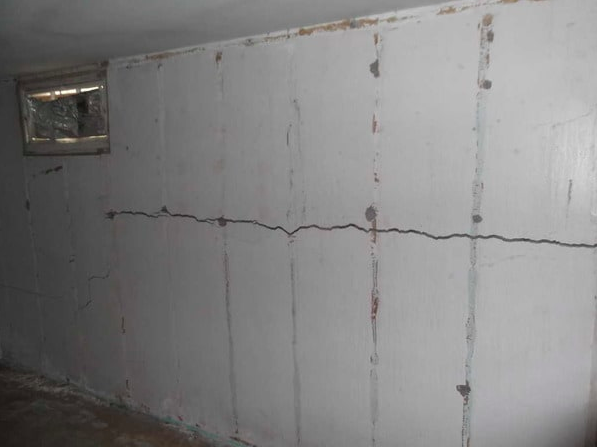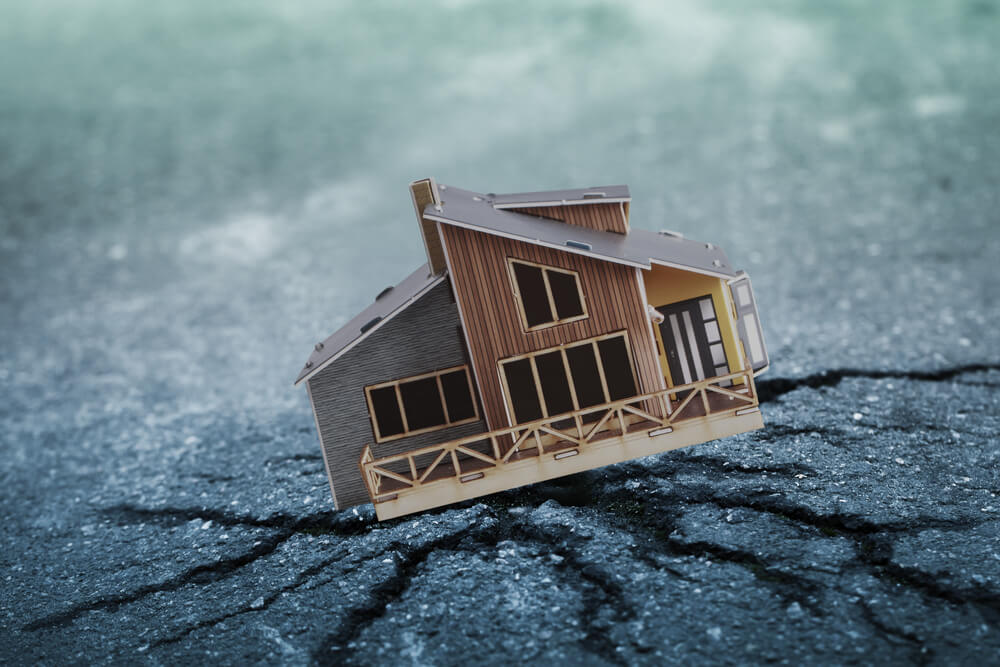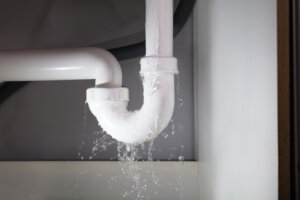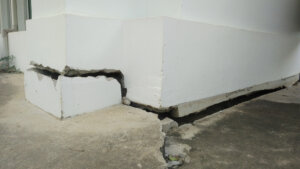Dealing with a flood is no small task. Thousands of dollars of damage can be done as water rapidly rushes into your home. The best way to prevent a flood is to take preventative action. Knowing the weak points in your home will allow you to fix them before a storm hits or a pipe bursts. Learn the warning signs that your home could be at risk of flooding and find out how to correct them.
Faulty Plumbing
Faulty plumbing is not only inconvenient, but it could also lead to much bigger issues, such as flooding. Do you find that you frequently have plumbing issues, such as back-ups and clogged pipes? If so, this could be a sign that not all is right with your plumbing. If this is a constant issue, it’s best to have it looked at by a plumber.
When there is a blockage in your pipes, especially if it’s the pipe that connects your plumbing to your water supply, there is a chance water will flow back through your basement drains. This will result in a pool of water on your basement floors. If left untreated or unnoticed, water will continue to leak through, causing mold to form. If left long enough you will have a flooded basement to deal with.
Another issue to watch out for, especially in winter, is frozen pipes. As the temperature drops, your pipes may freeze and build up significant pressure. The pressure can cause cracks to form in the pipe itself. Once the ice melts and your pipe thaw out, water can escape from these cracks resulting in flooding. To avoid this from happening, make sure you’ve properly insulated your outer walls and any exposed pipes. Protect your pipes by wrapping them in old towels or insulating tape. If you need help or are concerned about your pipes freezing, it’s always best to speak to a pro and get an expert opinion about the best course of action.
Water Near Foundation
Did you know that the most common source of a flooded basement is caused by water pooling on the ground near your home? If your foundation is not properly sealed, this pooling water can start to drip down into your home and cause bigger issues. This is why it’s essential to ensure your foundation is intact. If you’re concerned about yours, it’s best to have a waterproofing expert inspect the situation. They will be able to spot any issues and fix them so you’re not left with a flooded basement.
Pools of water can be caused by a number of factors. For example, this water could come from overflowing gutters, leaking faucets, or downspouts pointed in the wrong direction. Something as simple as holes in your landscaping could lead to a pool of water and a potential flood issue. Melting snow is also a big cause of flooded basements. If you’re concerned about cracks in your foundation but can’t get to them because of snow, make sure to ask your snow removal company to shovel snow away from your foundation.
Downward Slanting Driveway
Some homes are built so that the garage is below the first level of the home, requiring a downward slanting driveway. If you have a downward slanting driveway this could mean big trouble for your home during heavy rainfall or snow. Typically this style of home has precautions in place to accommodate for rain and snow. While catch basins do a good job of draining runoff water, they can overflow if there is a particularly heavy rainstorm or if they’re clogged with snow and ice.
If your catch basin cannot contain the excess water, gravity will take over and the water will flow into your garage. To make sure this doesn’t happen, you need to keep your catch basin clean and clear of any debris that could accumulate. If you’re concerned about how well your catch basin is functioning, have an expert come out and take a look. They will be able to suggest solutions and recommend if you should install a backwater valve.
Flat or Sloped Ground
If a downward slanting driveway is a cause for concern, just imagine if all of the ground sloped downwards towards your home. Ideally, the ground should always slope away from your home on every side. This allows rain and snow to naturally flow away from the home. If your home is on land that is very flat or slopes towards your home, you have a potential flooding risk on your hands.
Depending on when your home was built, you may have precautions in place. If not, you will want to speak to a waterproofing specialist who can best recommend steps to take to protect your home. Be sure to pay attention to snow build up, especially in areas where the ground slopes towards your home. You need to be diligent about clearing it away so that when the snow melts it doesn’t leak into your basement and cause a flood.
Tiny Cracks & Crevices

Even the smallest of cracks are big enough for water to get through. This is why you need to ensure your foundation is solid and has been professionally waterproofed. Foundation repairs are expensive, so you want to ensure everything is done right the first time. Whether your basement is finished or not, you do not want to deal with a flood. Ask your foundation specialist about using a sealant on your basement and be diligent about filling in holes and cracks.
The best thing you can do to prevent a flood is to ensure your home can handle excess water. Adjust slopes where possible, fill any cracks, and be sure to call in a plumber if you notice consistent issues. No one wants to deal with a flood. If, unfortunately, you do need to after all this, you can connect with a water damage restoration company. Good luck keeping your home dry and free of floods.




